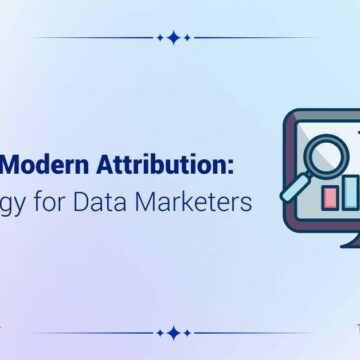What are the alternatives to cookies?
20/07/2021 |

Google may have recently granted third-party cookies a stay of execution, but the question is still a hot topic. What solutions are available for replacing cookies? How can companies maintain their digital activations while protecting personal data? Time to review the options.
A stay of execution… that is exactly what Google recently granted by announcing on 24 June that it would not block third-party cookies in Chrome early 2022. The Mountain View tech giant is now planning to phase out cookies mid-2023. There is an explanation for its decision to delay its plans. Basically, Google’s alternative to third-party cookies failed to garner enough support (to put it mildly). How can companies gear their cookieless strategy towards this new timeline? Should they give up on exploring other alternatives? Read on for some answers.
First of all, companies have to face up to the facts. Although third-party cookies have been given a reprieve, the writing is still on the wall. Remember that third-party cookies are living on borrowed time, because 2023 is only just around the corner. As it happens, they are already screened in Safari and Firefox. Current regulations (GDPR, ePrivacy, etc.), the growing consent trend and the heightened level of general sensitivity to personal data mean that companies have no other choice than to overhaul their tracking methods, whether in browsers or apps.
Google’s cohorts
On paper, this is actually the alternative that Google is aiming to achieve with its Privacy Sandbox, which is a suite of APIs for covering different applications (targeting, measurements, etc.). As far as targeting is concerned, Google is counting on FLoC (Federated Learning of Cohorts). The general idea with FLoC is that tracking is no longer focused on individual users, but a cohort containing at least a few thousand individuals. This initiative falls short in the eyes of the EFF (Electronic Frontier Foundation), which sees FLoC as a great way of promoting other identification methods, such as fingerprinting.
When drilling down into the details, the method raised a number of questions that very quickly compelled Google to sideline its plans of testing the scheme in Europe, especially due to the GDPR. In addition, Google’s iron-like grip on the scheme prompted the likes of Amazon to announce that it would prevent all information from flowing to FLoC… Faced with such a response, transforming FLoC into a new “standard” is an uphill struggle. Therefore, Google needs to take its idea back to the drawing board. Will a year be enough time for Google to bring its alternative into alignment with European regulations and create a united ecosystem? Major doubts continue to loom.
Server-side migration: an initiative worth pursuing
What other solutions are on the table? What initiatives can brands leverage as they prepare for the age of cookieless tracking? The first initiative involves migrating to a server-side strategy. Today’s cookie world uses a client-side approach, where browsers communicate with the service providers corresponding to the activated tags. With a server-side strategy, communication takes place between servers.
Several brands are planning to switch over to the server-side approach, including FLOA Bank. “We already know that migration will only be partial, because not all the solutions that we currently use are compatible with server-side management. But if we succeed with a few key acquisition tags, it will be a major step forward,” comments Carole Vinatier Gresta, SEO & Tracking Manager at FLOA Bank.
The SSO route: barred to all except the media?
Another route currently being explored is the single sign-on (SSO) scheme, where one login is shared by several sites within the same ecosystem. It comes as no surprise that the media are already trying out this initiative in an effort to provide a seamless user experience (without having to log back in from one media platform to another) and also share cross-site data. Such “groups” are still highly local and, except for a few exceptions, are currently restricted to the media industry.
Is the adtech sector heading towards new IDs?
Adtech players are setting their sights on alternative IDs (identifiers) to third-party cookies. Such is the aim of the Unified ID 2.0 initiative spearheaded by The Trade Desk, which has already won over such companies as Liveramp, Criteo and Nielsen. Unified ID 2.0 intends to use the emails that visitors agree to send in order to roll out an SSO-type scheme. The scheme is also planning to set up a portal where users can manage their preferences. The project’s limitation is that it requires a wide enough adoption to become an established standard and avoid fragmenting the market into different advertising IDs, which would involve a complex and costly reconciliation process.
The temptation of going back to the roots
For some professionals, the solution (or at least part of the solution) involves going back to the roots, i.e. putting audience planning on the backburner in favour of media planning. What that actually means is setting up a semantic targeting approach, such as analysing the tone and content for the purpose of assessing its eligibility for a given campaign. Admittedly, the technologies out in the field have matured and targeting precision has improved. This process eliminates the problem of identifiers that are likely to restrict the scope. Vendors gain the possibility of marketing their entire inventory, but advertisers need to make do with a highly limited amount of data.
Reviewing the alternatives to cookies clearly shows that no solution currently appears to be capable of bringing the entire ecosystem together as well as third-party cookies. Brands need to venture down the pragmatic road of working on their first-party data and curbing their dependency on third-party cookies (by migrating to a server-to-server approach) while scoping for new initiatives. The cookieless world is still searching for its north star.











